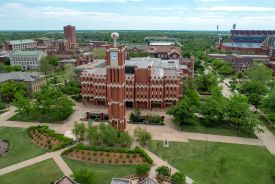Colorado State University (CSU) is set to become the first public school in the state to offer a bachelors degree in neuroscience, beginning fall 2014.
"CSU faculty members have conducted neuroscience research for more than 30 years," Jan Nerger, dean of the College of Natural Sciences, said in a statement. "We just haven't offered a degree in this area until now. It's a good fit for CSU. We have faculty members from a variety of departments working in this area so our students will be exposed to several facets of neuroscience."
Undergraduates enrolled in CSU's neuroscience degree program can focus on either of the two concentrations, Behavior and Cognitive Neuroscience (BCN) or Cell and Molecular Neuroscience (CMN). Students from both the concentrations will have to take up certain compulsory subjects including chemistry, mathematics, physics, cell biology and genetics and psychology.
"Most major research centers for neuroscience are found at medical schools," said James Bamburg, former director CSU's neuroscience research program. "Because of our strength in cell and molecular neuroscience within the College of Veterinary Medicine and Biomedical Sciences and our strength in behavioral and cognitive neuroscience within the College of Natural Sciences, we can offer a very well balanced and strong program."
According to the National Center for Education Statistics, 124 undergraduate neuroscience degree programs exist in the country, 24 of them are at public universities and the rest at private colleges.
Employment opportunities are abundant for Neuroscience graduates including academic or government institutes (e.g. Center for Disease Control) based on laboratory neuroscience or field studies in animal behavior and disease transmission; biotechnology companies that focus on developing bio markers or therapeutics for identification and treatment of neurodegenerative disorders, and as a technical writer for biomedical companies.
© 2025 University Herald, All rights reserved. Do not reproduce without permission.








